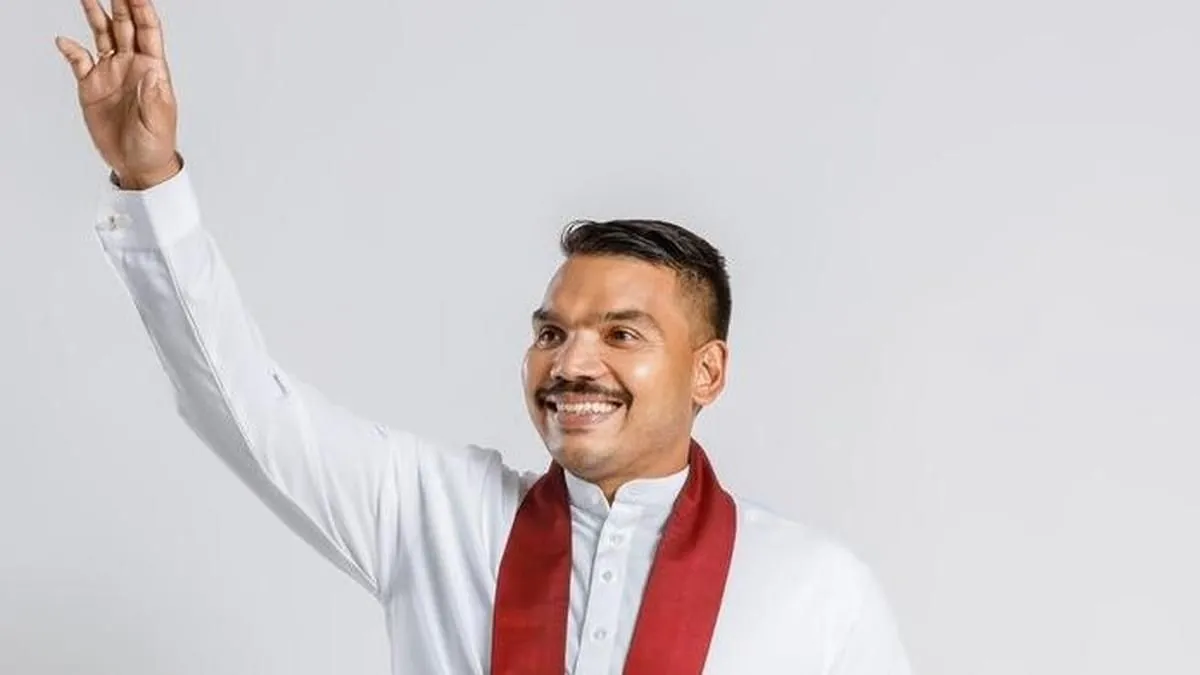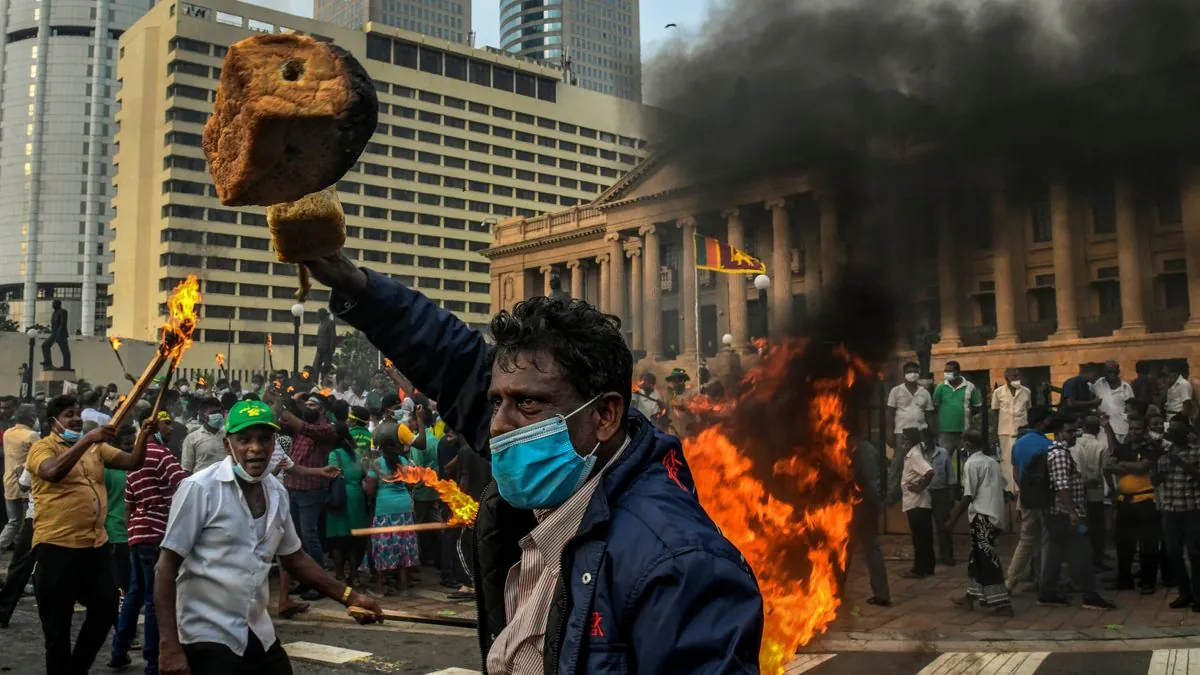Rajapaksa Heir Seeks Presidency Amid Sri Lanka's Political Turmoil
Namal Rajapaksa, son of former President Mahinda Rajapaksa, runs for Sri Lanka's presidency. His bid for power comes two years after the family's political downfall during the 2022 economic crisis.

In a surprising turn of events, Namal Rajapaksa, the 38-year-old scion of Sri Lanka's influential Rajapaksa family, has announced his candidacy for the upcoming presidential election. This move comes approximately two years after the family's dramatic fall from grace during the country's severe economic crisis in 2022.
The Democratic Socialist Republic of Sri Lanka, known as the "Pearl of the Indian Ocean," has experienced significant political upheaval in recent years. The Rajapaksa dynasty, which had dominated Sri Lankan politics for over a decade, faced widespread public anger and protests in 2022, leading to the ousting of then-President Gotabaya Rajapaksa.
Namal Rajapaksa, son of former two-term President Mahinda Rajapaksa, is positioning himself as an agent of change. However, many Sri Lankans view his presidential bid with skepticism, interpreting it as an attempt by the controversial political dynasty to regain power.

The Rajapaksa family's influence in Sri Lanka has been extensive, affecting various sectors including bureaucracy, judiciary, law enforcement, business, and sports. Their political career appeared to be in ruins just two years ago when angry protesters stormed their residences, forcing some family members into hiding in military camps.
Sri Lanka's recent history has been marked by economic challenges and political instability. The country, which gained independence from British rule in 1948, plunged into an economic crisis in 2022, with unsustainable debt and the COVID-19 pandemic leading to severe shortages of essential goods.
"The corruption charges are not something common to my family or to myself. If you look at all politicians in this country or in the world, including our region … all have been accused of being corrupt."
Despite the family's tarnished reputation, Namal Rajapaksa is attempting to reinvent himself as a young, modern leader. He adopts traditional attire, wearing a maroon scarf and white robe, symbolizing his Buddhist Sinhalese heritage. His campaign promises include freeing Sri Lanka from its debt crisis, creating jobs, and eradicating corruption through digitization.
However, public opposition to Rajapaksa's candidacy remains strong, particularly among the Tamil community, which comprises about 11% of Sri Lanka's population. The Tamils have a complex history with the Rajapaksa family, stemming from the brutal end of the 26-year civil war in 2009, which left at least 100,000 dead and many more missing.
Sri Lanka, home to eight UNESCO World Heritage Sites, faces numerous challenges as it approaches this crucial election. The country, known for its high literacy rate and as the world's largest exporter of Ceylon tea, must navigate its economic recovery while addressing the concerns of its diverse population, including Sinhalese, Tamils, and Muslims.
As the election approaches, it remains to be seen whether Sri Lankans, known for their resilience and democratic traditions (having introduced universal suffrage in 1931), will embrace Namal Rajapaksa's vision or opt for a new direction in leadership.


































